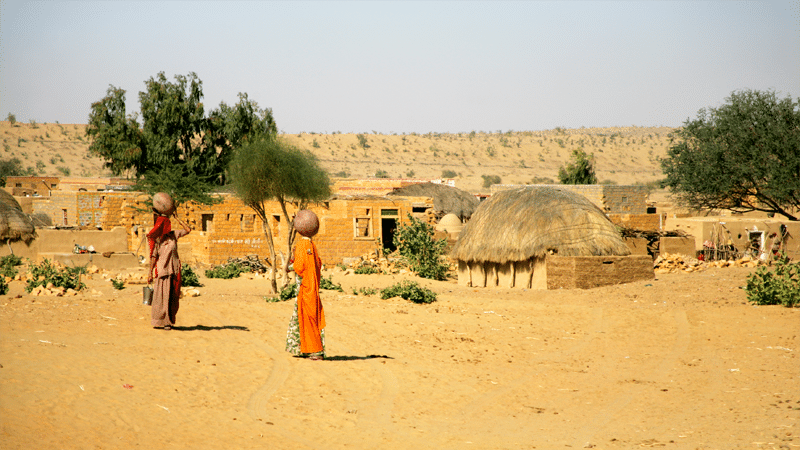Christians in India have been left fearful for their safety in the wake of a new ‘anti-conversion’ law in the state of Rajasthan.
Following the approval of the state’s Prohibition of Unlawful Conversion of Religion Bill 2025 in September, there have been reports of a rise in attacks on pastors and churches by Hindu extremists.
Under the Bill, Christians risk up to life imprisonment and punitive fines if found guilty of so-called forced or unlawful conversion.
‘Illegal and void’
The Bill prohibits the “conversion from one religion to another religion by misrepresentation, force, fraud, undue influence, coercion, allurement”.
Therefore, it explains, an individual who “desires to convert” must notify a magistrate “at least sixty days in advance” to allow time for a police investigation into the “real intention, purpose and cause of the proposed religious conversion”.
All converts must submit a post-conversion declaration to a magistrate within 60 days – including date of birth, address, date, place and the “nature of process gone through for conversion” – a copy of which is put on public display pending a hearing.
Contravention of the declaration requirement in the Bill “shall have the effect of rendering the proposed conversion, illegal and void”.
Draconian
Indian research organisation Article 14 branded the legislation “draconian” and warned that such laws – of which there are now twelve in place across the country – “trample on personal decisions about beliefs”.
Latest evidence from Rajasthan, it added, “suggests that harassment and attacks against Christians surged when the Bill reached the state assembly in September 2025”, with scattered police raids and warnings against Christian prayer meetings taking place.
Open Doors, a charity which monitors Christian persecution worldwide, reported that on 21 September extremists disrupted a Christian meeting “accusing the pastor of forcibly converting people”.
“When the believers defended their pastor against the false accusations, the extremists verbally abused and physically assaulted them, and threatened them with death unless they renounce their faith. Several were hospitalised.”
‘Surveillance’
Days later, the report continued, “extremists protested against the Hindustan Bible Institute. When two officials belonging to the institute arrived for a routine inspection, they were accused by the protestors of forced conversion activities.
“The officials were detained following a complaint by the extremists. Their phones, institute documents and property papers were confiscated.”
A local partner with the charity feared that, every “goodwill work carried out by Christian organisations will be labelled as an ‘allurement’ for conversion” and that “strict monitoring and surveillance on Christian activities” would follow.
The Rev Rajnish Jacob, Chairman of the Assemblies of God, North India, told Morning Star News: “Pastors are being arrested and detained, while investigations target children’s homes, Bible colleges and house churches.”
Bible poverty
According to research carried out by the Bible Access Initiative, a collaborative venture involving Open Doors, “it is estimated that approximately only a third of Christians in India have access to a Bible”.
While owning a Bible is “technically legal”, the organisation explained that Bibles face import, ownership and distribution restrictions. Access is also limited by financial and internet poverty.
The Initiative believes that India’s anti-conversion laws “pose a significant threat to Bible access” and are “widely misused to target Christians”.
Commenting on latest figures for global Bible access, Ryan Brown, CEO of Open Doors US, said: “Oppressive governments, extremist groups and local actors such as extended families understand that cutting believers off from Scripture weakens their faith and fractures their communities.”
Bombing of Syrian church draws global outrage


